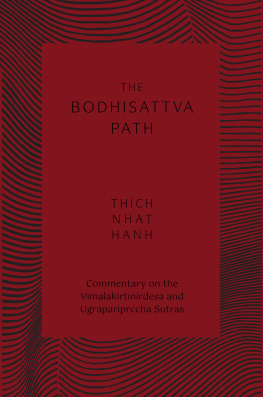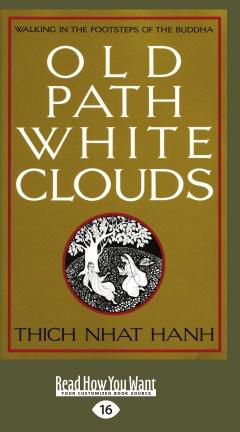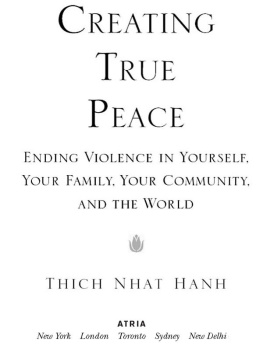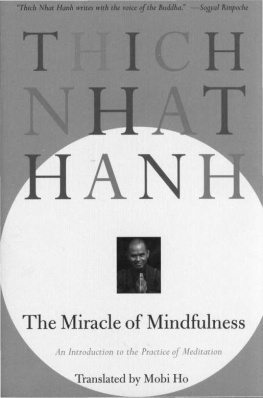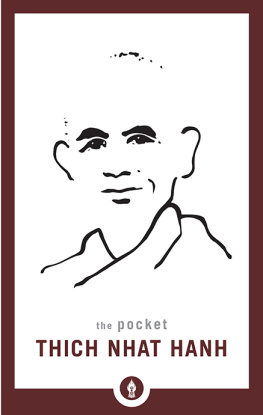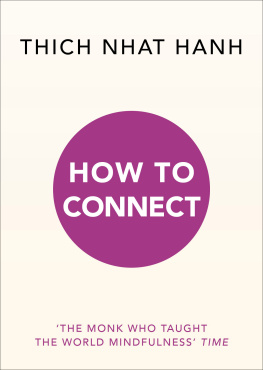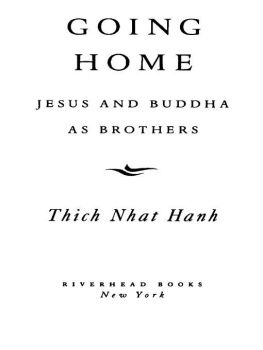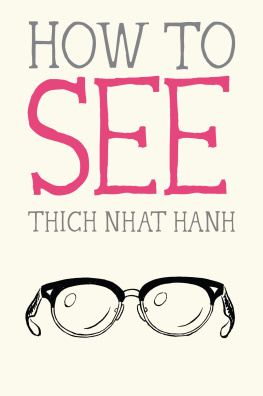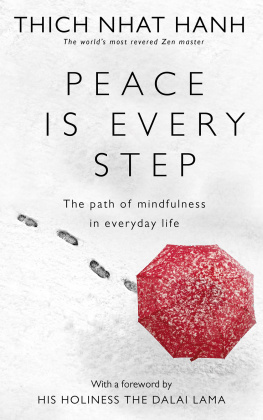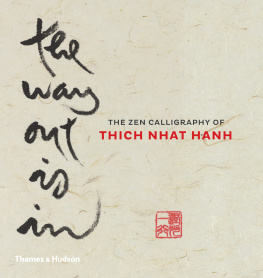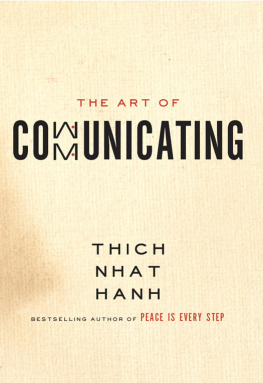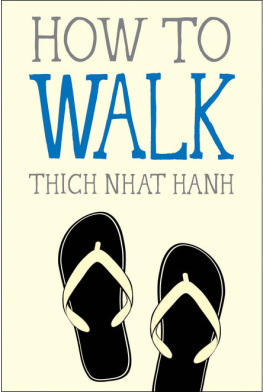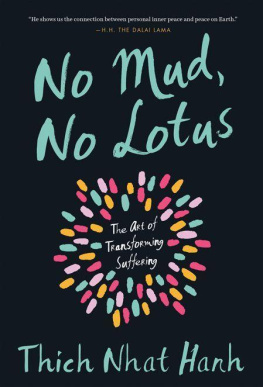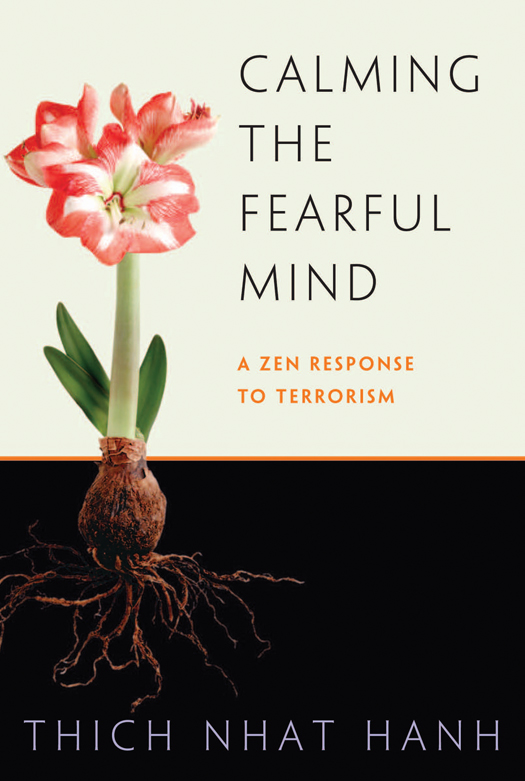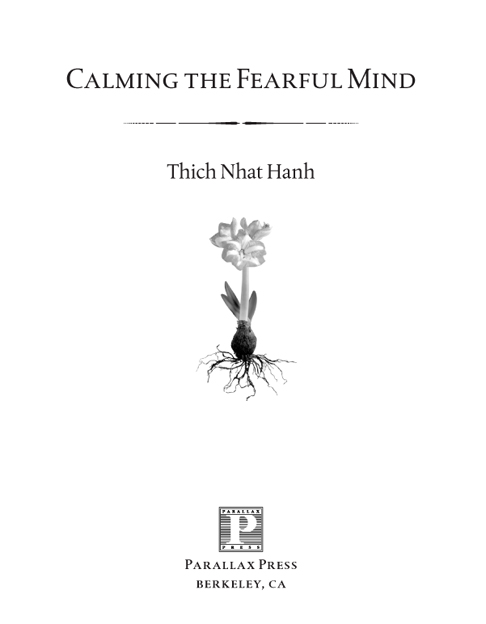Parallax Press
P.O. Box 7355
Berkeley, California 94707
www.parallax.org
Parallax Press is the publishing division of Unified Buddhist Church, Inc.
Copyright 2005 by Unified Buddhist Church
All Rights Reserved
No part of this book may be reproduced in any form or by any means, electronic or mechanical, including photocopying, recording, or by any other information storage and retrieval system or technologies now known or later developed, without permission in writing from the publisher.
Edited by Rachel Neumann.
Cover and text design by Gopa & Ted 2, Inc.
Library of Congress Cataloging-in-Publication Data
Nht Hanh, Thch.
Calming the fearful mind : a Zen response to terrorism / Thich Nhat Hanh; [edited by Rachel Neumann].
p. cm.
ISBN 1-888375-51-5 (pbk.)
1. TerrorismReligious aspectsBuddhism. 2. TerrorismReligious aspectsZen Buddhism. 3. BuddhismDoctrines. I. Neumann, Rachel. II. Title.
BQ4570.T47N53 2005
294.337dc22
2005015972
Ebook ISBN: 978-1-935209-07-2
v3.1
Contents

Recommendation

Promise me,
promise me this day,
promise me now,
while the sun is overhead
exactly at the zenith,
promise me:
Even as they
strike you down
with a mountain of hatred and violence;
even as they step on you and crush you
like a worm,
even as they dismember and disembowel you,
remember, brother,
remember:
man is not our enemy.
The only thing worthy of you is compassion
invincible, limitless, unconditional.
Hatred will never let you face
the beast in man.
One day, when you face this beast alone,
with your courage intact, your eyes kind,
untroubled
(even as no one sees them),
out of your smile
will bloom a flower.
And those who love you
will behold you
across ten thousand worlds of birth and dying.
Alone again,
I will go on with bent head,
knowing that love has become eternal.
On the long, rough road,
the sun and the moon
will continue to shine.
Thich Nhat Hanh, 1965
CHAPTER ONE

Uprooting Terrorism
O N N EW Y EAR S D AY , 2004, I arrived at the Los Angeles airport accompanied by 120 of my monastic students. I was asked to step into a small room to be searched. For over an hour, security guards searched me and my luggage, read my personal letters, and questioned a fellow monk to find out if I had ever made bombs. The security guards were not looking for my Buddha nature; they were looking for my terrorist nature. When a nation has come to this level of fear, it is going in the wrong direction.
We have looked for strength and security in military might. We have attempted to defend ourselves with weapons of war. We have brought great suffering and destruction upon ourselves and others. Our way of dealing with terrorism is taking us down a dangerous path of distrust and fear. It is time to stop. Let us pause. It is time to seek true strength and true security. We cannot escape our interdependence with other people, with other nations in the world. Let us take this moment to look deeply and find a path of liberation. It is possible to look at each other again with the eyes of trust, comraderie, and love.
U NDERSTANDING THE R OOTS OF T ERRORISM
We say we want to strike against terror, we want to destroy terrorism, but do we even know where to find it? Can we locate it with a radar? Can the army find terrorism using its night goggles and heat sensors?
Misunderstanding, fear, anger, and hatred are the roots of terrorism. They cannot be located by the military. Bombs and missiles cannot reach them, let alone destroy them, for terrorism lies in the hearts of human beings. To uproot terror, we need to begin by looking in our hearts. We dont need to destroy each other, either physically or psychologically. Only by calming our minds and looking deeply inside ourselves will we develop the insight to identify the roots of terrorism. With compassion and communication, terrorism can be uprooted and transformed into love.
If we look deeply, we can identify the real roots of terrorism. This isnt a superficial action. The roots of terrorism may be goodwill or religious faith. Some people commit acts of terrorism in the name of their values and beliefs. They may hold the idea that others are evil because they dont share these values. They feel justified in destroying their enemies in the name of God. People who engage in this violence may die with the conviction that they are dying for a righteous cause. And isnt our country acting out of the same conviction when we kill those we define as threats? Each side believes that it alone embodies goodness, while the other side embodies evil.
Fear is another root of violence and terrorism. We terrorize others so that they will have no chance to terrorize us. We want to kill before we are killed. Instead of bringing us peace and safety, this escalates violence. If we kill someone we call a terrorist, his son may become a terrorist. Throughout history, the more we kill, the more terrorists we create.
What would it take for us to be able to reach out to those who have terrorized us and say: You must have suffered deeply. You must have a lot of hatred and anger toward us to have done such a thing to us. You have tried to destroy us and youve caused us so much suffering. What kind of misunderstanding has led you to take such an action?
I lived in Vietnam during the war there and I saw a lot of injustice. Many thousands of people were killed, including many of my friends and students. It made me very angry. One time I learned that the city of Ben Tre, a city of 30,000 people, was bombarded by American aircraft because some guerrillas had come to the city and tried to shoot down American planes. The guerrillas did not succeed and afterward they left. In retaliation, the U.S. destroyed the entire city. The military officer responsible for this attack later declared that he had to destroy the city of Ben Tre in order to save it. I was very angry, but at that time I was already practicing Buddhism. I didnt say or do anything, because I knew that doing or saying things while I was angry would create a lot of destruction. I paid attention to just breathing in and out. I sat down by myself, closed my eyes, and I recognized my anger, embraced it, and looked deeply into the nature of my suffering. Then compassion arose in me.
Because I practiced looking deeply, I was able to understand the nature of the suffering in Vietnam. I saw that both Vietnamese and Americans suffered during the war. The young American men sent to Vietnam to kill and be killed suffered deeply, and their suffering continues today. Their families and both nations continue to suffer. I could see that the cause of our suffering in Vietnam was not the American soldiers. The cause was an unwise American policy based on misunderstanding and fear.


